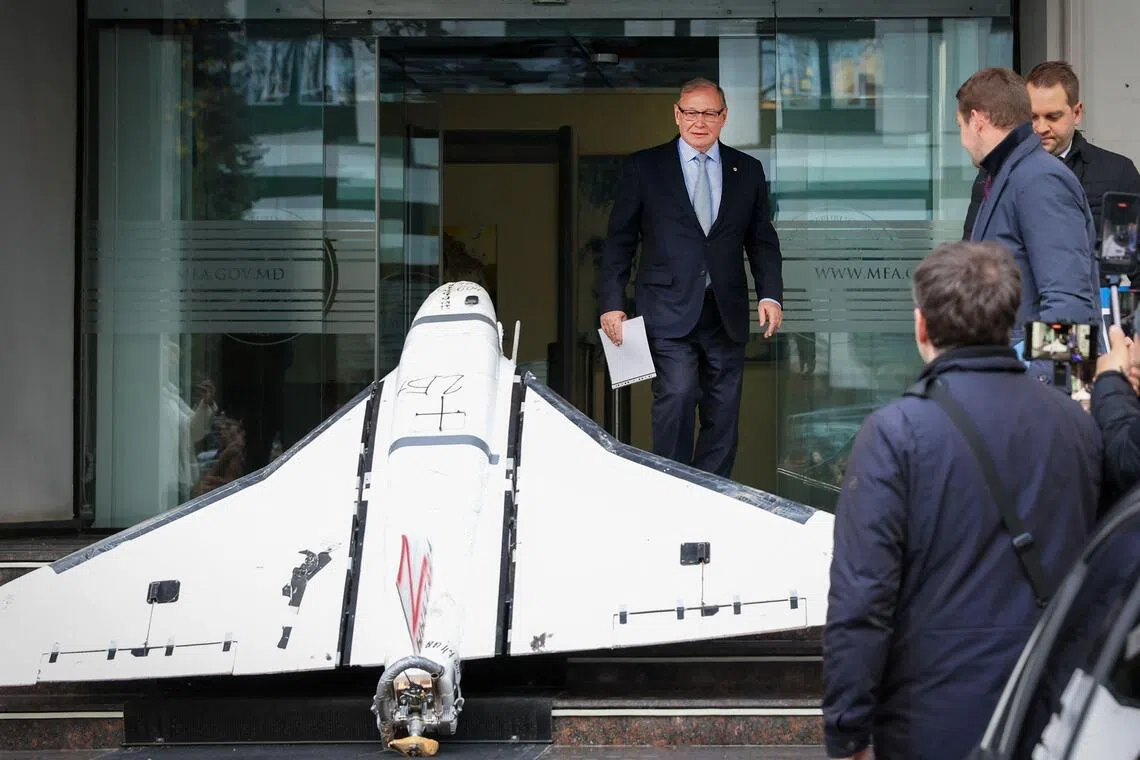Chisinau, Moldova – In a stark public rebuke, Moldova’s government on November 26 showcased a Russian-made Gerbera drone that had crashed on its territory, simultaneously summoning Moscow’s ambassador to lodge a formal protest. The incident, deemed "totally unacceptable" and a "serious violation of sovereignty," underscores the increasingly fraught relationship between the two nations, exacerbated by Russia's ongoing war in neighboring Ukraine.
Drone Wreckage Displayed Amid Diplomatic Summons
The small former Soviet republic, strategically situated between Ukraine and NATO member Romania, has endured repeated airspace breaches since Russia launched its full-scale invasion of Ukraine in 2022. This latest provocation saw the wreckage of the drone prominently displayed outside the Moldovan Ministry of Foreign Affairs headquarters, serving as a tangible symbol of its grievances.
Ambassador Oleg Ozerov was summoned to the ministry, where he was handed "a note of protest regarding the illegal overflight." A video later circulated on social media captured Mr. Ozerov exiting the building, walking past the downed drone, which was distinctly marked with a red "Z" – a symbol associated with Russian military actions.
The drone, one of six reportedly breaching Moldovan airspace, had crashed into a house in a village in northeastern Moldova on November 25, close to the Ukrainian border. Fortunately, there were no reports of significant damage or injuries.
Russia Dismisses Allegations as "Attempts to Damage Relations"
When questioned by local media about the incident, Ambassador Ozerov downplayed its significance. He reportedly cast doubt on the circumstances, asking, "Do you believe this?" and questioning why the drone was found on a roof "without destroying anything." Mr. Ozerov attributed the accusations to "many attempts to damage our relations with Moldova, which are already at their lowest point in history."
Further Strain: Cultural Centre Closure
This drone confrontation follows Moldova’s recent decision to close a Russian cultural centre in Chisinau. In early November, Moldova's pro-EU government approved a bill to shut down the centre, labeling its activities "by no means cultural." This move, which has been fiercely condemned by the Kremlin and pro-Russian opposition within Moldova, awaits parliamentary approval, with the government aiming for closure by summer 2026.
These successive events highlight Moldova's firm stance against perceived Russian aggression and influence, as the nation continues its pivot towards European integration amidst regional instability. The future trajectory of Moldovan-Russian relations appears increasingly uncertain.

